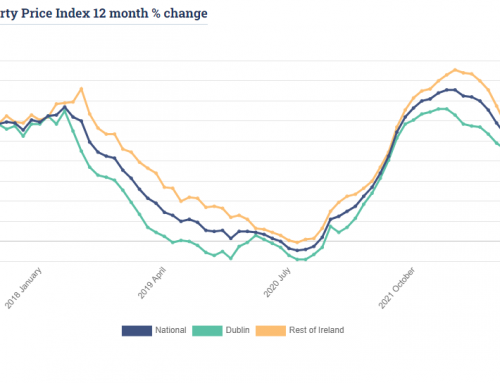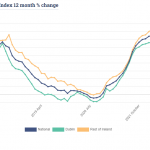Important changes to rental legislation
The Residential Tenancies (Amendment) Act 2019 was signed into law on May 31st 2019. Find out more information below on the important changes to the rental sector.

Changes to laws for ending a tenancy
Effective from 4th June, the legislation provides for a number of changes relating to tenancy termination including new notice periods for landlords ending a tenancy and changes to notice procedures and obligations.
Change to notice of termination where landlord intends to sell – a landlord must enter into a contract for sale within 9 months of the termination date and must offer to re-let the property to the tenant if it becomes available for let within the following 12 months.
Change to notice of termination where landlord intends to substantially refurbish the dwelling – the landlord must provide certification by a registered professional that the works would pose a threat to the health and safety of the occupants of the dwelling concerned, would require vacation of the property and would take at least 3 weeks to complete. The landlord must offer the property back to the original tenant on completion of the works.
Changes to notices of termination where a landlord intends to move in or move family in and where a landlord intends to change the use of the dwelling – the landlord must offer the property back to the tenant should it become available for let from 12 months from the expiry of the notice of termination.
Remedial notice of termination – Landlords and tenants do not have to start over again when issuing a new notice under certain conditions. If the notice is invalid due to a defect, an Adjudicator / Tribunal can allow the original notice to be remedied by serving a remedial notice within 28 days of issuing a determination order.
Changes to Rent Pressure Zone measures, rent reviews and rent setting provisions
Effective from 4th June, important changes have been made to the exemptions that allow landlords to set the rent to market levels.Exemption 1 – a property must be new to the market, having not been let in the 2 years prior to the immediate tenancy commencement date. The exemption applies for the initial rent review to market level but thereafter the Rent Pressure Zone rules apply.Exemption 2 – A ‘substantial change’ in the nature of the accommodation has been defined and will only be deemed to have taken place where specific criteria have been met.
All Rent Pressure Zone designations have been extended until 31st December 2021.Rent certainty measures outside of Rent Pressure Zones (24 months between reviews) have been extended until 31st December 2021.Rent Pressure Zones will be designated by different criteria which may lead to new designations.
Further changes still to come
Student Accommodation* not yet commenced
Landlords who provide residential accommodation to students during academic term time will come under the remit of the RTB. Landlords and student tenants will now have access to the RTB’s dispute resolution service and will have certain rights and responsibilities however there are some differences between student tenancies and other private rented tenancies.
Sanctions and Investigations functions* not yet commenced
The new Act provides the RTB with more effective powers to directly regulate the rental sector, particularly in relation to Rent Pressure Zones and associated Rent Exemptions, and in relation to Notice of Terminations. The legislation sets out a complaints, investigations and sanctions process that will allow the RTB to proactively monitor and enforce the legislation, in relation to these three key areas.
The introduction of these new powers of investigation and the related sanctions regime, give the RTB a more active and direct regulatory role in the rental sector and will allow the RTB to support landlords in complying with the legislation.
The changes introduced in the new Act, allows the RTB to investigate, with or without a complaint, potential breaches (“improper conduct”). These potential breaches will be investigated by the RTB and where it is found “improper conduct” has occurred, the RTB can apply a caution or a sanction on a landlord of up to €15,000. It is important to note that the sanctions regime allows proportionality to be applied to potential breaches and offers landlords the opportunity to acknowledge the breach at an early stage.
The RTB has the powers to proactively conduct its own investigations, but the RTB will be able to accept information from any members of the public and/or organisations who wish to report a suspected breach as described above.
Annual registration* not yet commenced
Landlords will be required to register their tenancies on an annual basis on the anniversary of the date the tenancy commenced.










